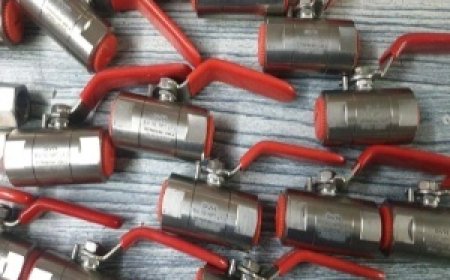How to Export Turmeric and Spices from India: A Step-by-Step Guide
Learn how to export turmeric and spices from India with this step-by-step guide covering regulations, documentation, sourcing, buyer identification, and shipping processes for successful global trade.
Turmeric and spices from India have long been popular bartered products, with traces found in the Harappan civilization. Both of these agro-commodity products have a rich history of being traded across the globe from India.
Both turmeric and most forms of spices are known to have originated in India, and have been traded on the global stage since 700 BCE (Turmeric) and 1700 BCE (Spices).
India exported turmeric worth 212B USD in 20232024, accounting for 6280% of the global turmeric trade. Spices, meanwhile, held almost 4852% of the total global spice trade, valued at 4.72B USD.
These trade numbers reflect growing confidence in Indian exporters. However, exporting turmeric and spices isnt a cakewalk. A buyer or seller must follow several guidelines, fulfil legal requirements, and often face indefinite delays from government offices.
Lets have a look at what steps you need to take to export turmeric and spices from India:
Global Market Demand Analysis
Traders must consider overall global market trends before drawing any conclusions. Which market are you targeting, USA, Europe, Middle East, etc.? Buyers in these regions often look for the following certified products: Organic (NOP/EU), ISO/HACCP, FSSAI, Kosher & Halal, USDA Organic.
Following are the top importing countries of turmeric and spices: USA, UK, Malaysia, UAE, Iran, Germany, Japan, and Sri Lanka.
Legal Business Registration
For a trader, legally registering the business is essential. Without proper registration documents, trading is not allowed in any foreign country. Apart from registration, obtain a PAN number for your business and open a current account.
Obtaining Important Licenses
There are a few essential licenses a trader must obtain before starting to export products across borders. These include: Import Export Code, Spice Board Registration, FSSAI License, and GST registration.
Sourcing and Processing of Turmeric and Spices
Sourcing, procuring, and processing high-quality products remain the most critical aspects of trading, as these directly impact quality. Without quality assurance, buyers wont place repeat orders. Thus, a trader needs to ensure the following:
-
Source from certified farms or APMC markets.
-
Invest properly in cleaning, polishing, and drying units.
-
Ensure zero adulteration and proper moisture control.
Packaging and Branding Element
Packaging and branding elements are just as critical for a trader as the product quality itself. Good packaging creates a strong first impression among buyers. Apart from aesthetics, an exporter must ensure that all legally mandated guidelines are followed in packaging.
Identifying Reliable Buyers
Finding the right buyer eliminates many concerns for an exporter. One can discover reliable and verified buyers on digital agro-trade platforms. These platforms authenticate traders globally, offering exporters a trustworthy list of buyers and sellers at their fingertips.
Final Terms and Export Contract Drafting
Contract drafting is where trust between a buyer and seller meets legality. Your contract papers should leave no room for ambiguity across borders.
You must think of it as your safety net, as such a critical document protects you, your buyer, and your cargo when things go wrong or get delayed.
-
Decide on INCOTERMS (FOB, CIF, etc.).
-
Mention payment terms (LC, Advance, 5050).
-
List product specifications, delivery schedules, and penalties.
Logistics and Shipment
Your spices may be the real deal of the whole trading process, but without a smooth functioning of logistics, they can lose value or get stuck at the port.
A reliable logistics partner is the real partner of your trading journey, as they ensure the timely delivery of the shipment.
-
Choose a reliable freight forwarder or CHA (Customs House Agent).
-
Book a container or part load (LCL).
-
Get the product custom-cleared, then ship.
Key Documents Needed:
Documentation is required for traders to ship their products to the international market. One missing document can stall your shipment indefinitely.
It is important to keep your documents copied and secure their digital backups. At different stages of the trade process, buyers and authorities will ask for them at different stages.
-
Commercial Invoice & Packing List
-
Bill of Lading / Airway Bill
-
Certificate of Origin
-
Phytosanitary Certificate (mandatory for spices)
Conclusion
Exporting turmeric and spices from India holds vast potential due to the country's historic market dominance. Success requires strict adherence to quality, legal compliance, and market analysis.
By securing certifications, sourcing quality products, building reliable buyer ties, and managing logistics, exporters can meet global demand. Despite challenges like delays and strict standards, following these steps ensures a strong foundation for success in the spice trade.



































